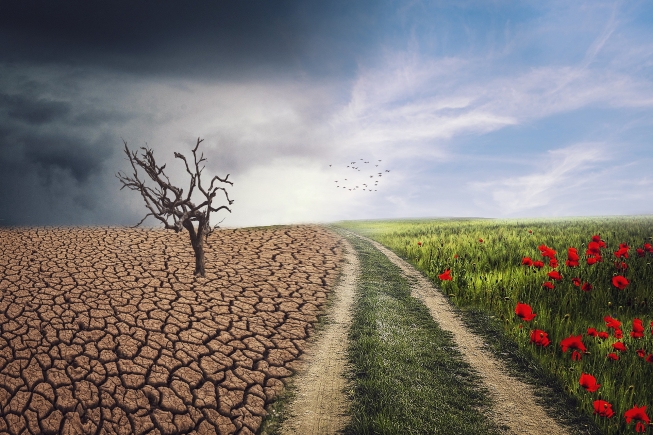
Mitigating impact of climate change on agric, food security
Climate change continues to dominate global policy discourse, especially over the past four decades.
Advertisement
The impact of climate change on the environment and livelihoods makes it a great deal of concern for policymakers and governments worldwide.
The focus on climate change in recent times is because of the threat that it poses to agriculture production, food security, the environment and humanity, especially in developing countries.
Again, there is growing interest in climate change issues due to the continuous increase in greenhouse gas (GHG) concentration in the atmosphere.
It is documented that human activities contribute to this growing global conundrum, which has affected global temperature and precipitation patterns.
Since climate change directly influences temperature and precipitation trends, as well as extreme events such as drought and flood, the agriculture sector is unequivocally the most vulnerable.
The impact is more alarming in Africa, particularly in Ghana which depends on rain-fed agriculture and primitive farming methods.
Effects of climate change
Climate change is likely to intensify seasonal and inter-annual rainfall variation as long-term changes and trends take place.
This situation may create water and heat stress, the outbreak of pests and diseases, the loss of productive lands through the deterioration of ecosystems and additional burdens to supply chains such as increased post-harvest losses during storage and distribution.
The likely consequences of such stress include yield reductions, decreased live-stock values, post-harvest losses and reduced food accessibility and consumption.
In addition, natural disasters, migrations and threats to human health can degrade human and social capital, including devaluing assets as well as infrastructure in agricultural communities.
Coping strategies
One of the likely effects of the increased variability in yields and the increased uncertainty of the return on investments is that farmers will tend not to make the proper investments and production choices.
Weather information services, insurance mechanisms and other adaptations could be put in place to reduce producers’ risk exposure and to increase the overall economic efficiency of production.
A feasibility study of crop insurance shows that a variety of insurance products can help reduce the negative effects of making decisions in an uncertain environment and might benefit farmers. Research and development on improved seeds and varieties and better seed distribution systems would have similar effects.
In order to cope with the ongoing climate change, a variety of measures that can help farmers are laid out, such as crop diversification and specialisation, improved crop practices and production technology, pest and disease control, adaptive water management and moisture control, soil conservation and erosion control, fertilisation, irrigation as well as extension services and training, among others.
Scaling up the adoption of these practices from single farmers and projects to entire regions is a challenge.
The great variety of farming systems and community needs present in Ghana mean that a one-size-fits-all approach will be inadequate and that strong institutional support and efforts are required.
Increasing resilience
Improvement in post-harvest processing and storage methods are obvious ways to increase resilience to climate change, even as they reduce crop loss.
Investments in social and human capital, malaria prevention or female empowerment also increase resilience.
Research results indicate that addressing gender, education or access to credit can enhance farmers’ adaptation.
In some cases, incremental climatic stress caused by climate change may erode farmers’ capital reserves, and government intervention in this area might be necessary.
Generally speaking, good development policies are also good climate change policies.
For example, poverty reduction policies will reduce the poor’s vulnerability to extreme weather events and the need for emergency interventions.
Improving the economic and energy efficiency of value chains, reforming land tenure, improving road networks and integrating agricultural water use in an overall national water strategy are necessary steps which could help Ghana develop its economy and adapt to climate change.
Recommendations
Current climate change scenarios predict an increase in temperatures and rainfall variability in Ghana.
Despite the uncertainty about the likely effect, multiple studies have found that in aggregate, a decrease in the yields of major crops (maize, rice, groundnuts) in Ghana is likely, if no adaptations are made.
Ghana needs to develop strategies to cope with the stress and damage that climate change can impose on the country’s agricultural sector.
As variability in the global food supply increases due to climate change, building a climate-resilient agricultural sector will help Ghana address domestic food security and remain a stable commodity supplier for Africa and the globe.
Climate change mitigation options recommended to Ghanaian farmers include appropriate use of chemical and organic fertilisers, use of improved crop varieties that allocate more biomass underground, rotations with legume crops that reduce the need for nitrogen fertiliser, use of agroforestry, adoption of no-till or reduced tillage, use of cover crops, use of crop residues for mulch and improved water management for irrigated crops.
The writer is the Registrar, Chartered Institute of Agriculture
Email: [email protected]




